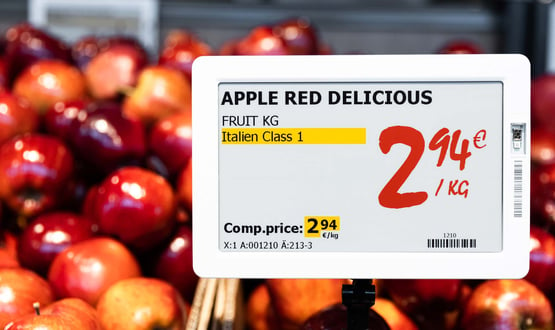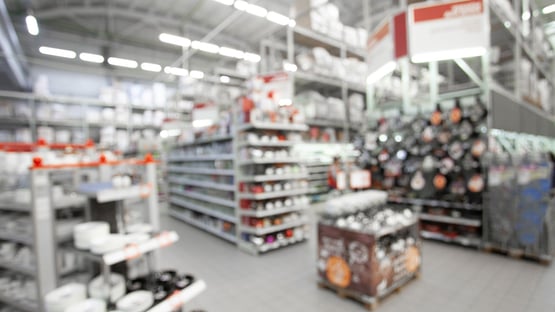In order to stimulate the German economy, which was badly hit by the corona pandemic, the German government has decided to lower the VAT rate. It is a temporary reduction for the period during the second half of 2020 from 19% to 16% (respectively 7% to 5% for services subject to reduced VAT).
The measure from the economic stimulus package is intended to boost retail sales. At the same time, this temporary reduction leads to several administrative challenges for the companies in the country.
Leading retailers like Edeka, Lidl, Kaufland, Rewe, Aldi or Netto have announced that they want to pass on the reduced VAT to their customers in the form of price cuts. Other retailers will probably follow their example. In doing so, this requires that the German retailers recalculate and change their prices twice, first when the reduction starts in July and then at the end of the year.
As most retailers in Germany still use paper labels the industry is claiming that the measure will lead to massive costs.
Stefan Welke is the country manager of Germany at Pricer. He sees a growing interest in digital solutions for retailers in Germany, an interest he says is accelerating due to the COVID-19 pandemic.
Grocery stores, but also DIY and other stores like home electronics, have seen a huge demand for handling online orders due to COVID-19 and the effects of lockdown and social distancing requirements, he says.
Some stores are better positioned than others in handling this situation, but also consequences like the need for major price changes due to new situations such as VAT adjustments.
Retailers who have postponed the digitalization of their stores until now, and still use paper labels, have a journey ahead of them, as they first need to establish the basic infrastructure to support frequent price changes and the increased customer demand for solutions like Click & Collect.
One solution that forms the platform of many retailer’s offerings is the use of Electronic Shelf Labels (ESLs) enabled with advanced flash capabilities and product location identification to provide optimized, immediate guidance. This solution is also foundational to maximize store efficiency and customer engagement.
”Retailers today realize that solutions based on an ESL system, such as price automation and Click & Collect, are a must as things move into a new normal. Not having an ESL based platform in times of major price changes and rising customer demand for online orders is a major obstacle for retailers, and a situation where competitors who have already invested in-store digitization will have a great advantage”, says Stefan Welke.
If you want to find out more about electronic shelf labels, store efficiency and digitization, please contact Stefan Welke by e-mail or by phone, +49 17 620 10 01 76.



